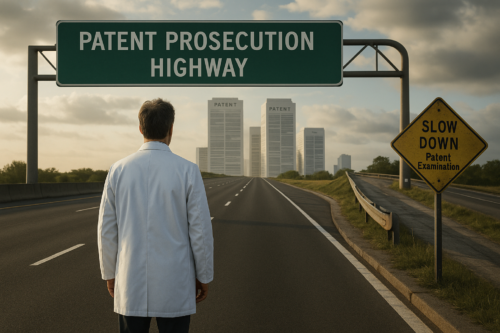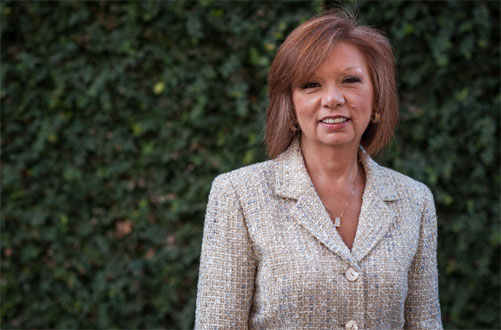
The Patent Prosecution Highway (PPH) is an international initiative that enables accelerated examination of patent applications through cooperation among participating patent offices. For business owners and attorneys seeking faster intellectual property protection, the PPH is useful tool for streamlining the patent prosecution process.
The Patent Prosecution Highway (PPH) is a cooperative framework among patent offices designed to expedite the examination of utility patent applications. It consists of a series of bilateral and multilateral agreements that permit applicants to leverage favorable examination results, such as an indication that at least one claim is allowable from one participating patent office (referred to as the Office of First Filing or OFF) to request accelerated examination in another participating office (the Office of Later Examination or OLE).
For example, if an applicant receives a positive examination outcome in a European patent application, they may use that outcome to file a PPH request in the Japan Patent Office (JPO), Korean Intellectual Property Office (KIPO), or any other office with a PPH agreement in place. To qualify, the application filed in the second office must sufficiently correspond to the claims found allowable in the first office, and a PPH request must be filed before substantive examination begins.
The PPH significantly streamlines the patent prosecution process by allowing patent examiners in the second office to rely on the prior search reports, written opinions, and examination results from the first office. These shared work products can guide the examiner in identifying allowable subject matter more quickly, often leading to fewer office actions, earlier grants, and reduced costs for the applicant.
In addition to bilateral agreements, the Global PPH pilot program provides a harmonized framework that includes over two dozen participating patent offices, enabling applicants to use a standardized request process across multiple jurisdictions. By allowing applicants to request accelerated processing in OLE offices, the PPH supports faster and more efficient international intellectual property protection.
PPH programs are particularly useful for applicants filing under the Patent Cooperation Treaty (PCT), as positive written opinions or international preliminary examination reports from the International Searching Authority (ISA) or International Preliminary Examining Authority (IPEA) can serve as the basis for a PPH request during the national phase.
The Patent Prosecution Highway (PPH) was developed to address several challenges in the global patent landscape, particularly the redundancy and inefficiencies caused by multiple jurisdictions independently examining similar or identical applications. Traditional patent prosecution often involves waiting for a first office action and responding to multiple rejections. With the PPH, the examination process is expedited, and the number of office actions may be reduced. By fostering cooperation and information sharing among participating patent offices, the PPH aims to create a more streamlined and harmonized international patent system.
Overall, the objectives of the PPH align with the broader goals of modernizing the international patent system, facilitating foreign trade, and encouraging innovation through faster and more cost-effective intellectual property protection.

To use the PPH, an applicant must first file a patent application in a participating office (the office of first filing or OFF). Once that office determines that at least one claim is allowable, the applicant may request accelerated examination for a corresponding application in another participating office (the office of later examination or OLE).
Filing a Patent Prosecution Highway (PPH) request requires careful attention to timing, documentation, and jurisdiction-specific rules. Applicants should ensure full compliance with the requirements of the relevant participating patent office to avoid delays or outright rejection. Filing a PPH request typically involves the following steps:
Applicants should also be mindful of the timing and procedural nuances in different jurisdictions. Some offices may have specific forms, page limits, or electronic filing protocols. Filing errors, such as failing to provide required translations, omitting correspondence tables, or submitting the request after substantive examination has begun, can result in denial of the PPH request.
There are three primary types of PPH that reflect the sources of prior work products used to support a request for accelerated examination.
Each PPH type offers unique advantages depending on the applicant's filing strategy, target jurisdictions, and the source of allowable claims. For applicants filing under the PCT, the PCT-PPH route is often the most efficient. For those relying on fast national examination results, bilateral or Global PPH pathways may be preferable. Regardless of the type chosen, all PPH programs aim to reduce redundancy, speed up examination, and improve the predictability of international patent prosecution.
Numerous countries and regional offices participate in PPH programs, including:
A full list of participating patent offices and their bilateral agreements can be found on the USPTO and WIPO websites.
While the Global PPH provides a consistent framework, some patent offices maintain unique procedures or requirements. For example:
Understanding local requirements helps avoid rejection of the PPH request.
As international collaboration and demand for streamlined intellectual property (IP) systems grow, the Patent Prosecution Highway (PPH) is poised to evolve significantly. The globalization of innovation, increased cross-border filings, and technological advancements are driving ongoing improvements in the scope and functionality of PPH programs.
Several key developments are shaping the future of the PPH:
In summary, the Patent Prosecution Highway is a powerful mechanism that provides a strategic advantage to businesses and innovators by expediting prosecution of patents, improving consistency among jurisdictions, and lowering the overall burden of securing global patent rights.
If you are considering pursuing international patent rights or you have other patent matters with which you need assistance, contact our office for a free consultation.
© 2025 Sierra IP Law, PC. The information provided herein does not constitute legal advice, but merely conveys general information that may be beneficial to the public, and should not be viewed as a substitute for legal consultation in a particular case.

"Mark and William are stellar in the capabilities, work ethic, character, knowledge, responsiveness, and quality of work. Hubby and I are incredibly grateful for them as they've done a phenomenal job working tirelessly over a time span of at least five years on a series of patents for hubby. Grateful that Fresno has such amazing patent attorneys! They're second to none and they never disappoint. Thank you, Mark, William, and your entire team!!"
Linda Guzman

Sierra IP Law, PC - Patents, Trademarks & Copyrights
FRESNO
7030 N. Fruit Ave.
Suite 110
Fresno, CA 93711
(559) 436-3800 | phone
BAKERSFIELD
1925 G. Street
Bakersfield, CA 93301
(661) 200-7724 | phone
SAN LUIS OBISPO
956 Walnut Street, 2nd Floor
San Luis Obispo, CA 93401
(805) 275-0943 | phone
SACRAMENTO
180 Promenade Circle, Suite 300
Sacramento, CA 95834
(916) 209-8525 | phone
MODESTO
1300 10th St., Suite F.
Modesto, CA 95345
(209) 286-0069 | phone
SANTA BARBARA
414 Olive Street
Santa Barbara, CA 93101
(805) 275-0943 | phone
SAN MATEO
1650 Borel Place, Suite 216
San Mateo, CA, CA 94402
(650) 398-1644. | phone
STOCKTON
110 N. San Joaquin St., 2nd Floor
Stockton, CA 95202
(209) 286-0069 | phone
PORTLAND
425 NW 10th Ave., Suite 200
Portland, OR 97209
(503) 343-9983 | phone
TACOMA
1201 Pacific Avenue, Suite 600
Tacoma, WA 98402
(253) 345-1545 | phone
KENNEWICK
1030 N Center Pkwy Suite N196
Kennewick, WA 99336
(509) 255-3442 | phone
2023 Sierra IP Law, PC - Patents, Trademarks & Copyrights - All Rights Reserved - Sitemap Privacy Lawyer Fresno, CA - Trademark Lawyer Modesto CA - Patent Lawyer Bakersfield, CA - Trademark Lawyer Bakersfield, CA - Patent Lawyer San Luis Obispo, CA - Trademark Lawyer San Luis Obispo, CA - Trademark Infringement Lawyer Tacoma WA - Internet Lawyer Bakersfield, CA - Trademark Lawyer Sacramento, CA - Patent Lawyer Sacramento, CA - Trademark Infringement Lawyer Sacrament CA - Patent Lawyer Tacoma WA - Intellectual Property Lawyer Tacoma WA - Trademark lawyer Tacoma WA - Portland Patent Attorney - Santa Barbara Patent Attorney - Santa Barbara Trademark Attorney